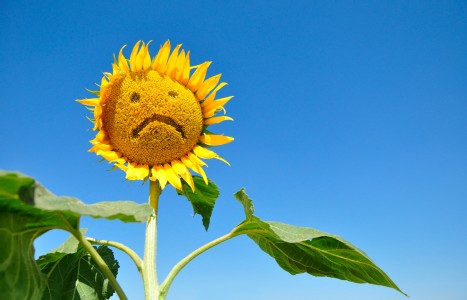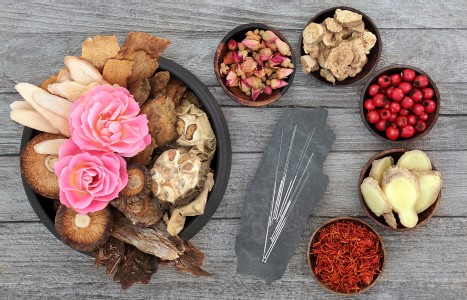Did any of you ever get the feeling in school that it simply was not OK to speak about wanting to be successful? To get into the nitty gritty details of how to make money in practice? Maybe you were even someone like me who was directly told by someone in a position of power that I needed to take what I could get because in private practice, I wouldn’t make money.
The True Anti-Aging Medicine
I think that we've all heard stories about Chinese physicians who were paid as long as their patients were healthy, but the patients refused to continue payment if they fell ill. In other words, it was basically the job of physicians to keep people healthy. What a concept!
One of the old fashioned ways of thinking about health and anti-aging is that living the way or living according to the laws of nature will help us maintain a youthful vitality. For example, in Lu's translation of the Nei Jing and Nan Jing there are numerous discussions about following the seasons for utmost health. There is the suggestion that the energy in the body varies with the rotation of the four seasons: spring, summer, fall, and winter. Gao Shi Zong said, "A sage will nourish yang in spring and summer in order to generate the energy of the lesser yang and to produce the energy of the greater yang. In autumn and winter, one should nourish yin in order to harvest the energy of the greater yin and to store the energy of the lesser yin. Thus, to nourish yang in spring and summer means to generate and produce; to nourish yin in autumn and winter means to harvest and store."
What happens if we act contrary to these principles? Kidney energy and lesser yin will be injured thereby reducing their ability to store.
Following this classical advice should guide us in our practices with regard to how imbalanced pulses will feel and what the goal of the treatments might be throughout the year. Additionally, it can be our guide when giving nutritional or herbal advice to patients. Our recommendations can be simple, not dauntingly complicated so that they are unlikely to be followed. For example, ding xiang (clove) warms Kidney Yang so, according to Gao Shi Zong's advice, would be an appropriate addition to one's diet in spring and summer. Other easy additions to the diet for warming include yi zhi ren (cardamon), gan jiang (ginger), xiao hui xiang (fennel), and rou gui (cinnamon). Cooking methods can include slow cooking and pressure cooking to increase the warmth of foods. During times of rebuilding yang, avoid the very hot spices like pepper and chili. These may cause initial heat but the following sweating forces the heat to be lost. For nourishing yin in autumn and winter use more liquids in cooking and avoid roasting and baking. Ginseng (xi yang shen) is a very "popular" and well known herb that will nourish yin and add honey (feng mi) to the diet. It tonifies digestion and prevents dryness. There are easy ways for people to follow the laws of nature.
What we call "flu season" may actually be related to people's not "nourishing life during the three months of autumn."
According to the Nei Jing, failure to follow this principle will cause damage to the lungs and an inability to deal adequately with the energy (cold) of winter. It is said that "to live against the trends of autumn energy will lead to an inability of greater yin to constrict which brings about energy congestion of the lungs in the upper heater...the lungs and the large intestine are fond of cool energy. If one fails to live in harmony with the cool energy of autumn, the two organs will not be in good shape to cope with the cold winter that follows." Nourish the lungs and qi with shan yao (dioscorea), bai he (lily bulb), ren shen (ginseng), and huang qi (astragalus). Ren shen greatly tonifies our original qi and supports hormone regulation. Acupuncturist Jim Ramholz said that, historically, ren shen is "considered the closest herb in overall balance to man's own energy," which is what makes it such a popular and important herb. Huang qi will also help tonify our Wei qi for protection from disease. Simple food additions to maintain yin include rice, tofu, some beans, raspberry (also astringes), banana (but not too much because it can cause dampness), and melons. Naturally, all herbal and food recommendations need to be made with care and appropriate cautions with regard to dosing.
In his book, "Shaolin and Taoist Herbal Training Formulas for Ch'I Kung, Meditation, the Internal Martial Arts, and Longevity" James Ramholz states: "There is no room for death" when "the energy is full, yin and yang are in harmony, and the acupuncture meridians flow without obstruction." This is a description of what he calls the "ideal level of well-being" and is the key to longevity. Nourishing the shen or spirit also holds an important role in attaining longevity. Treating the emotions is such an important part of Traditional Chinese Medicine, but is often overlooked by the general public as one of its strengths. Historically, a calm shen has been considered one of the cornerstones of good health; it is after all, one of the Three Treasures. Emotional or psychologically excesses or imbalances inevitably lead to physical symptoms.
This concept of maintaining good health through the use of Chinese Medicine therapies may take a little "attitude retooling" for our patients. The modern way is to see your physician when there is something wrong, not when you are healthy. Perhaps calling Chinese Medicine the "true anti-aging medicine" will be a catchy way to begin to educate people about the importance of maintaining good health rather than going in for treatment only when ill or injured. Or, we can use the tried and true car maintenance simile: do you let your car's oil go down to one drop before you take it in for maintenance? Of course not, that would create too much engine damage and be very expensive. Taking better care of our cars than our bodies doesn't make sense. There is no virtue in allowing your body's essence, qi, blood, etc. to decline dramatically before you receive treatment.
Maintenance equals youthful vitality.


